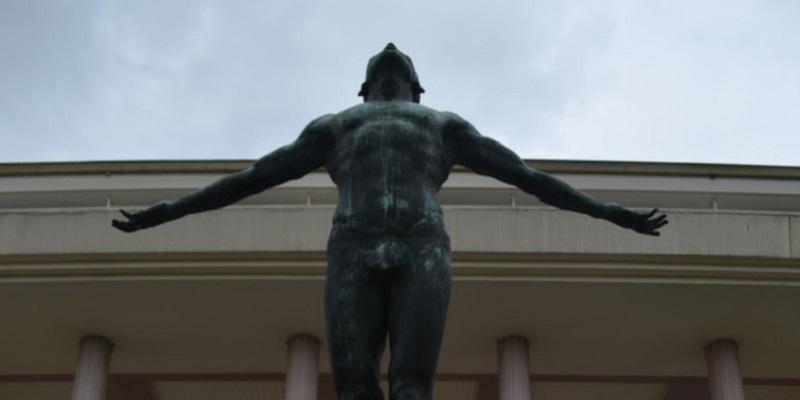How the DND-UP agreement came about in 1989

Bagong Alyansang Makabayan (Bayan) secretary general Renato Reyes Jr. said Tuesday the Department of the National Defense (DND's) move to unilaterally end the deal with the University of the Philippines on the ban on entry of state forces was a desperate bid of the Duterte administration to silence its critics.
"It is an indication that the regime wants human rights violations to spill over to campuses that are considered bastions of academic freedom," Reyes said in a press statement.
Reyes said the agreement, signed on June 30, 1989, provided the guidelines on the conduct of police and military operations so that the incident, involving one Donato Continente, would not happen again.
According to UP Professor Danilo Arao, the agreement was signed 14 days after Continente, then a staff of the Philippine Collegian, was abducted and later on tortured and forced to confess to the murder of American soldier Col. James Rowe.
Arao said the pact in 1989 was an update of the accord between student leader Sonia Soto and former defense minister Juan Ponce Enrile in 1982.
1989: As a news writer of the Philippine Collegian, I remember the abduction of our staff Donato Continente on the night of June 16 at Vinzons Hall. He was tortured and forced to confess to the killing of Col. James Rowe. This is why the UP-DND accord was signed 14 days later.
— Danilo Arao (@dannyarao) January 18, 2021
"Essentially, both accords provide guidelines on military and police presence on campus, particularly the conduct of operations and arrests of UP students, faculty, staff and other constituents," Arao told GMA News Online.
Provisions
Reyes said one of the important provisions of the agreement was requiring the military and the police to inform the UP administration about their operations, including the serving of search and arrest warrants inside the campus.
"The military cannot just enter UP campus grounds at any time, unless there is an emergency or there is hot pursuit of suspects, or unless there is a request for police assistance by the administration," Reyes said.
It was stated in the agreement that "prior notification shall be given by a commander of an AFP, PC-INP, or Citizens' Armed Force Geographical Units intending to conduct any military or police operations in any of the UP campuses in the constituent universities of UP Diliman, UP Manila, UP Los Baños, and UP Visayas or in any of the regional units in Baguio, San Fernando, Tacloban, Ming-ao and Cebu to the UP President, or the Chancellor of the constituent university, or the Dean of the regional unit concerned, or their respective officers-in-charge in the event of their absence, when the situation so warrants."
It further stated that whenever requested by law enforcers, the concerned UP officials "shall extend the necessary assistance in the enforcement of the law within UP premises."
The University's officials "shall endeavor to strengthen UP's own security, police and fire-fighting capabilities so as to leave no vacuum that can be explicited by malefactors or criminal elements."
Reyes said the agreement also prohibits state forces from interfering in any peaceful protest actions inside the campus as they are the responsibility of the UP officials.
"The AFP and PNP must notify the UP admin at the soonest possible time of any arrest of a UP student, faculty or personnel," Reyes said.
The deal states that "the service of search or arrest warrants on any UP student, faculty, employee, or invited participants in any official UP activity shall, as far as practicable, be done after prior notification is given the UP president or chancellor of the constituent university, or dean of the regional unit concerned, or their respective officers-in-charge in the event of their absence."
"The UP-DND accord also states that no UP student, faculty or personnel should be subjected to custodial investigation without first informing the UP President or Chancellor and without the presence of a lawyer," Reyes said.
No warrants shall be served without the presence of at least two UP faculty members designated by the University's administration, the agreement says.
It adds that arrests or detentions "must be reported immediately by the head of the arresting team to the appropriate UP officials."
The pact also states that a joint monitoring group, composed of UP officials and concerned state forces, should meet as often as necessary to determine if the provisions were being observed by both parties.
As the agreement was unilaterally ended by the DND, Reyes said everything that the accord prohibited would now be permitted.
"'Yung dating bawal, puwede na. Yung dating safeguards, wala na. That is the implication of the accord’s termination. But if there’s one thing we learned the past five decades, it’s that the UP Community will not allow this, not then, not now," Reyes said.
For Arao, there should be a due process in deciding to terminate the agreement.
He said amendments could be made in the pact but it must be backed with evidence. He also said the issue with the agreement is its enforcement.
"Of course amendments may be introduced but, as in any academic setting, it should be evidence-based. We cannot just rely on the say-so of the DND Secretary whose red-tagging is, as expected, without any iota of evidence," Arao said.
"If you would read the 1989 accord, there is no clear repealing clause. But even then, there should be due process in the termination," he said.
In explaining the termination of the deal, Defense Secretary Delfin Lorenzana said the agreement has become "obsolete," claiming that UP through the years has become "the breeding ground of intransigent individuals and groups whose extremist beliefs have inveigled students to join their ranks to fight against the government."
According to Lorenzana, who is a retired military general, the agreement was signed in 1989 as "a gesture of courtesy accorded to UP upon the University’s request." —KBK, GMA News




